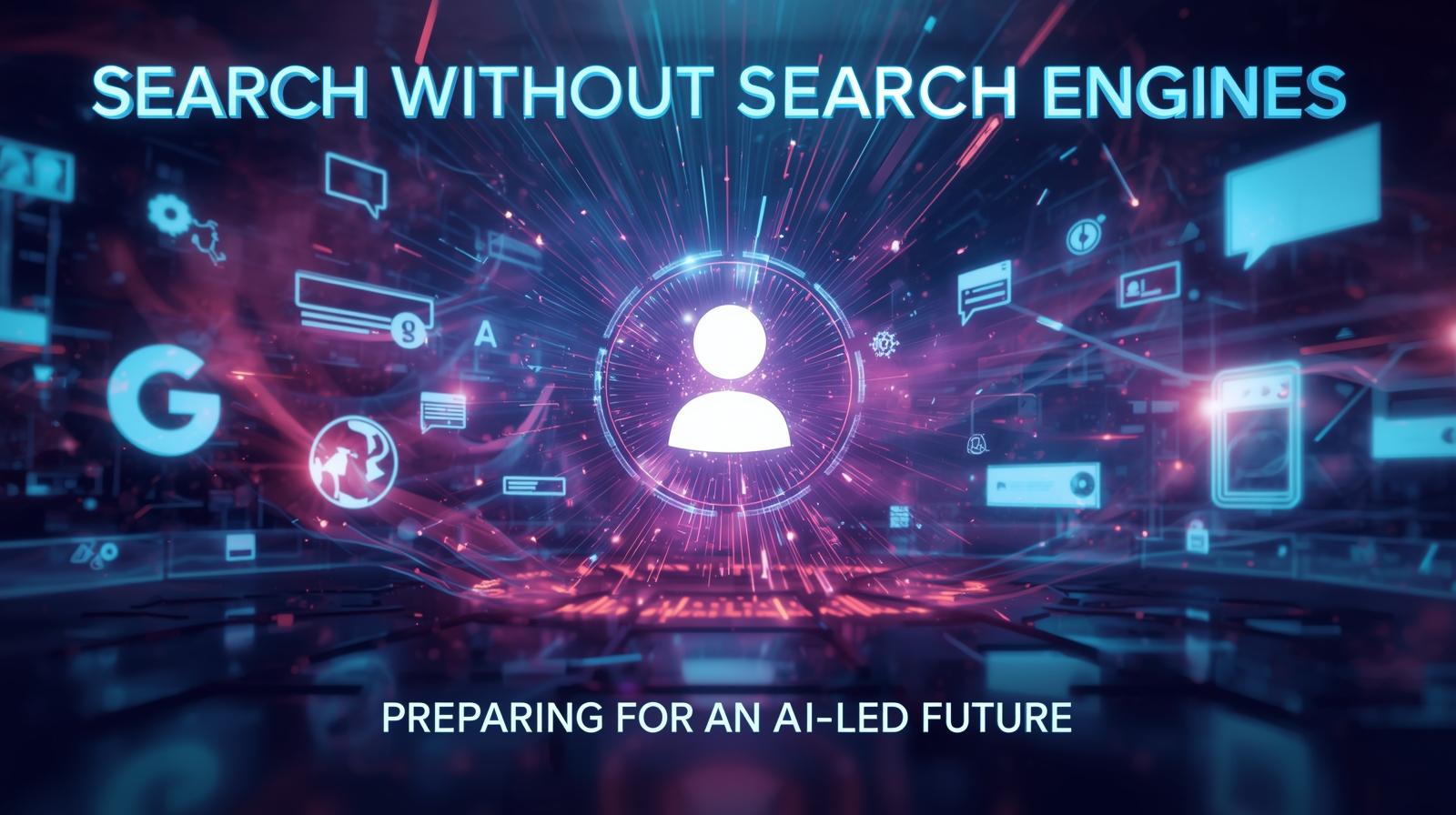The digital world is moving beyond its reliance on traditional search engines. Artificial Intelligence (AI) is transforming the way we find, consume, and interact with information. Instead of typing keywords into a search bar, users are turning to AI-powered assistants, predictive algorithms, and conversational interfaces that provide direct, context-rich answers. This transformation signals a future where search will no longer depend solely on engines but will be woven into the everyday fabric of life.
From Keyword Queries to Intelligent Conversations
The era of keyword-driven search is fading. In its place, AI conversational models like GPT, Gemini, and Copilot are creating dynamic, human-like dialogues with users. Instead of receiving a list of links, people now get precise, conversational answers tailored to their needs.
- AI understands natural language rather than fragmented keywords.
- It retains context, enabling seamless multi-turn interactions.
- Results are personalized based on user history, preferences, and intent.
This shift requires businesses to optimize content for contextual depth, relevance, and authority rather than shallow keyword targeting.
The Evolution Toward Proactive Search
In an AI-first world, search doesn’t just respond to questions—it predicts them. Proactive discovery is emerging, where AI anticipates what users need before they ask.
For example:
- A fitness tracker might suggest hydration reminders before you feel thirsty.
- A smart fridge could recommend recipes based on its current inventory.
- AI assistants may propose articles, services, or products aligned with your daily habits.
This marks the rise of intent-driven search, where brands must anticipate needs and deliver solutions preemptively.
The Voice-First Search Revolution
The surge of voice assistants like Alexa, Siri, and Google Assistant is reshaping how queries are made. Instead of typing “weather tomorrow,” people ask, “What will the weather be like in New York tomorrow morning?”
- Voice queries are longer and more conversational.
- Local businesses gain visibility through “near me” searches.
- Direct answers matter more than broad, generic content.
For brands, this means adopting FAQ-driven strategies and creating concise, direct, and conversational responses optimized for voice-first search.
Optimizing for the AI-First Search Future
The rules of SEO are shifting. Traditional keyword stuffing and backlinks are no longer enough. AI prioritizes structured, authoritative, and user-centric content.
Key optimization strategies:
- Structured Data and Schema Markup
Helps AI interpret and deliver precise, machine-readable answers. - Authoritative Content (E-A-T)
Content that demonstrates expertise, authoritativeness, and trustworthiness ranks higher in AI responses. - Conversational Writing Style
Long-tail, question-driven, and natural language content aligns with how users query AI.
Enhanced User Experience
Speed, accessibility, and mobile-first design remain critical ranking factors in AI-led discovery.
Personalization at the Core of AI Search
The future of search is personalized and hyper-targeted. AI adapts results based on behavior, interests, and past activity.
- Dynamic recommendations replace static results.
- Content customization tailors offers, articles, and services to individuals.
- Predictive analytics drive marketing strategies to anticipate demand.
For businesses, personalization means knowing the customer better than ever and building strategies that adjust in real-time.
Challenges of AI-Led Search
While promising, the AI-first future raises challenges:
- Reduced website traffic as AI delivers direct answers.
- Bias and misinformation risks from poorly trained AI models.
- Privacy concerns with personalization requiring large datasets.
The solution lies in ethical AI optimization, data transparency, and verified content strategies.
How Businesses Can Prepare Today
To stay competitive in a search-without-search-engines future, organizations must act now:
- Create conversational, in-depth content tailored for AI answers.
- Adopt structured data to increase machine interpretability.
- Focus on voice and visual optimization for hands-free and multimodal search.
- Establish brand authority with trustworthy and authoritative sources.
- Embrace predictive marketing to stay ahead of consumer intent.
Conclusion: The AI-Led Discovery Era Has Arrived
The future of search is intelligent, proactive, and deeply personalized. Instead of relying solely on search engines, AI will become the default interface for information discovery, offering instant, contextual, and predictive results.
Businesses that embrace AI-first SEO strategies, prioritize conversational engagement, and adapt to new search modes will remain visible and competitive. The companies that fail to adjust risk losing relevance in a world where search engines are no longer the gatekeepers of knowledge.
Follow Us | Our Services | Contact Us | Linkedin | Instagram


